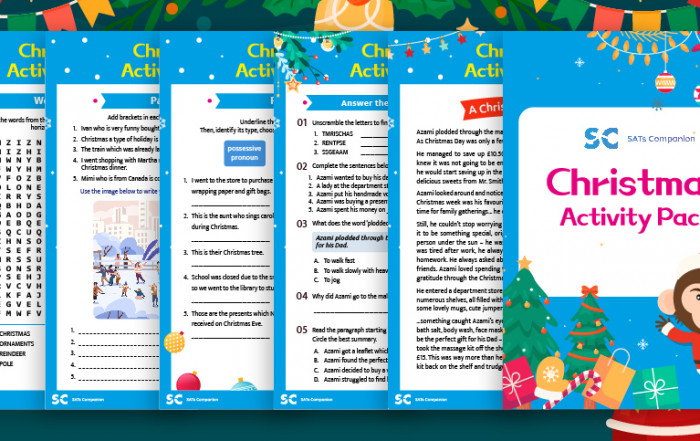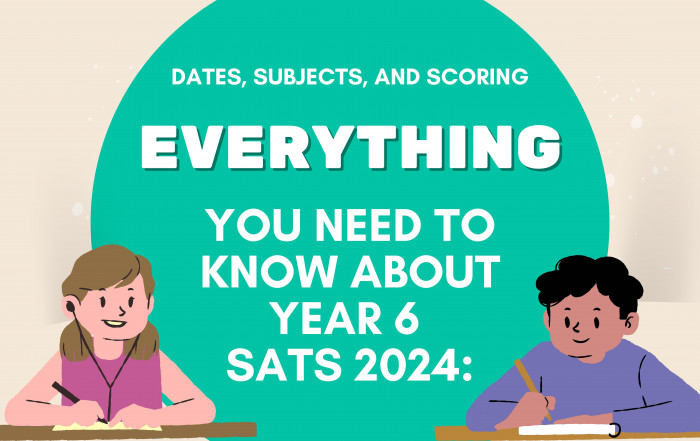FAQs about SATs
The start of Spring Term is usually when most schools start bringing the conversation of the KS2 SATs to the forefront. During this time, many parents have questions with regards to the SATs. From whether they are necessary to who uses the SATs results, we’ve compiled a useful list of FAQs which may help to answer some of those questions.
If you have any you’d like us to add to the list and answer, please feel free to let us know!
What are the Year 6 SATs results used for?
SATs Results are used to measure progress. Schools have to meet a national standard in attainment or progress for the KS2 SATs Tests in May.
Many people who are oppose the KS2 SATs say that the results are just for the school’s benefit, and do not hold any value in terms of individual pupils. The SATs results are used primarily by schools. There is no need to retake them if a child does not reach the expected standard.
Though unusual and not common practice, SATs results can sometimes be used by secondary schools to determine sets or groups to stream pupils in Year 7.
How much revision is necessary for KS2 SATs?
Most primary schools will be completing SATs revision and practice during the course of Year 6. Along with SATs preparation at school, a 6 week revision plan should be sufficient. Overloading with past papers and books should be avoided and alternative methods such as online mediums should be considered which introduces a more fun and engaging element when revising. Furthermore all SATs topics are covered in one place and progress can be viewed eliminating unnecessary focus on topics which are already a strength.
Are the Year 6 SATs hard?
The level of difficulty of the KS2 SATs has increased over the past couple years. It is anticipated that the upcoming SATs tests this May 2020 will be on a similar pitch to previous years . However more SATs revision platforms has emerged to aid combat the KS2 SATs tests in May.
Are the Year 6 SATs a legal requirement?
The Department of Education have made the SATs compulsory for primary schools to run the tests. However there have been incidences whereby some parents have withdrawn their child from sitting the test.
When are the Year 6 SATs tests?
The Year 6 SATs tests generally commence during the second week of May. This years KS2 2020 SATS Tests will take place from Monday 11th May.
What do the SATs tests involve?
The KS2 SATs tests cover English; Reading, Spelling, Punctuation and Grammar (SPaG), along with Maths; Arithmetic and Reasoning.
How are the SATs tests scored?
80 is the lowest score and 120 is the highest.
A 100 score means the pupil is working working at the expected standard.
Below 100 = Working below the expected standard
Above 100 = Exceeded the expected standard
When Will I Know the Results from the SATs Exam?
Key stage 2 SATs results are released to primary schools in June/July. However it is up to the schools to decide when they will inform parents of their child’s results. The majority of schools will send home a letter and end of term report showing whether your child has met the national expected standard or not.
Where can I find help with SATs?
There are many resources, blogs, videos and parent advice available surrounding the KS2 SATs Tests. Your schools website will also display important information and recommended resources for your child concerning the SATs.
Various online platforms such as SATs Companion introduces a fun and engaging way to prepare for the Key Stage 2 SATs in May. With SATs style questions, videos, personalised feedback and progress tracking, your child will feel confident in sitting their SATs tests in May.
Other websites include BBC Bitesize, Mirodo Education.
How can I support my child during their SATs?
Reassuring your child during and in the lead up to their SATs is extremely important. As SATs difficulty levels has increased, so has the pressure to achieve the national expected standard. Make sure you talk to them to eliminate any fears and stress.. For more advice on this keep posted for our SATs 2020 pupil wellbeing guide. You can also seek past SATs papers for your child to practice on to help build familiarity.
What does all the SATs jargon mean?
Scaled Score – Every child’s raw SATs test score is converted to a scaled score. The scaled score is used to determine how well your child has performed in their KS2 SATs tests.
Expected Standard – This refers to the expected progress level your child should be working at compared to other pupils with the same grades in prior assessments.
Greater Depth – If your child is working at greater depth, this means they are exceeding their expected progress level.
Attainment – This is a measure of your child’s achievement which compares every child’s expectation standard based on their age level.
…For more questions and SATs related information, support and resources visit https://satscompanion.com/
How Sats Companions’ all-in-one online platform can help your child to beat their year 6 SATs tests in May?
With SATs Companion, we provide everything you need to get your child ready for their SPAG, Maths and Reading tests in May 2020. Boost confidence and accelerate progress for your child with SATs Companion.
Access instant results and see the areas they are doing well in, and the topics they need to work on. SATs Companion will support your child to increase in confidence in Maths and English. Try SATs Companion for free for 14-days. Visit SATs Companion for more details and to get started!
Follow us on social media for free resources, advice and special offers.








Leave A Comment
You must be logged in to post a comment.